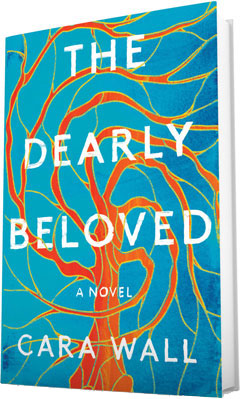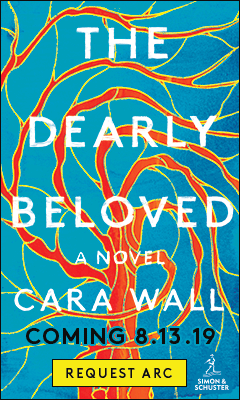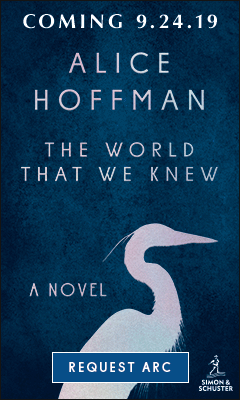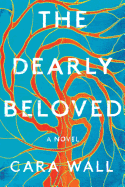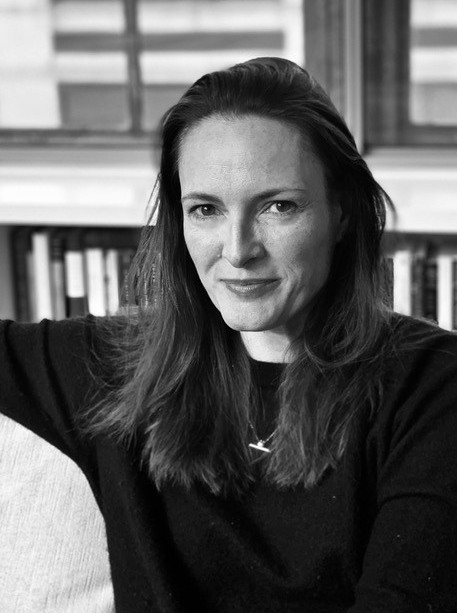The Dearly Beloved
by Cara Wall
Cara Wall plumbs the deep complexities of friendship and faith, set against the backdrop of a rapidly changing world, in her soulful debut novel, The Dearly Beloved. The son of a respected classics professor at Harvard, Charles Barrett has always expected to follow in his father's academic footsteps. During his undergraduate years as a history major, he is caught off guard by two seismic events. First, he realizes, suddenly and irrevocably, that he wants to be a minister, for reasons he can't entirely explain. At nearly the same time, he meets Lily, a brilliant, reserved orphan studying at Radcliffe. She captivates Charles, though she tells him immediately that she can never believe in God. Over the next several years, Charles convinces Lily to build a life with him, despite knowing that she will always stand resolutely apart from his faith.
James MacNally, the youngest son of a drunken father and a worried mother, has hardly thought about God until a distant uncle offers him the chance to go to college, to escape his bleak Chicago neighborhood. Growing impatient with abstract philosophy and rhetoric, he moves toward the church as a way to confront the injustices he sees in the world. He meets Nan, a Southern minister's daughter studying music, and they marry. When, in 1963, Charles and James are jointly called to pastor a Presbyterian church in Greenwich Village, these four lives become inextricably and permanently intertwined.
Wall begins her narrative with Charles's death, and a brief glimpse into the grief of James and Nan. She poses the question: How do we come to love another person so much that we "cannot bear [their] passing?" The narrative then goes back to introduce each of the main characters: Lily's sudden loss of both her parents in a car accident when she was a teenager; Charles's uneasy relationship with his distant father and careful mother; James's impatient longing to be free of his father and make a difference in the world; Nan's childhood in her Mississippi church. Wall tells the origin story of each couple's relationship, then shows the uncertain first encounter between James and Charles (who interview for the same job). The unorthodox decision of the Fourth Presbyterian Church to hire them both, young and untried though they are, will end up shaping the rest of their lives.
As the church--historically comfortable, white and middle-class--struggles to adapt to the turbulent 1960s, its two young ministers must adjust to their new jobs, their multifaceted joint responsibilities and to each other. Jane Atlas, the long-time, no-nonsense church secretary, guides them both with a steady hand. But they must learn to navigate the politics of ministry on their own, and work in tandem while respecting one another's vastly different perspectives. Meanwhile, Nan longs to befriend Lily, but Lily keeps herself deliberately separate from Charles's work and their new community. James's restless energy and Charles's sober, thoughtful approach to ministry work provide a good balance in the office, but the personal relationships among all the characters are more complicated and infinitely more interesting.
Wall uses the backdrop of professional ministry and the pressing questions of faith and vocation to expertly explore the layers of connection that exist within each marriage and between the two couples. Over the years, James, Charles and Nan each grow into a deep personal faith, but all of them wrestle mightily with doubts and fears, especially when one of Charles and Lily's twin sons, Will, is diagnosed with autism. Charles, to his own shame, finds it particularly difficult to accept his son as he is, but all four adults ultimately respond to Will in ways that make them more compassionate, more human.
Although Will's diagnosis and its effects loom large in both couples' lives, Wall's narrative includes a whole host of other struggles. She explores the congregation's response to some of James's more controversial decisions, and what happens when Charles decides to share his own doubts publicly. She probes the deep love that exists in each marriage, and the (non-religious) faith both pairs of spouses must place in one another. Through decades of heartbreak, happiness and many ordinary days, they build lives and families the best way they know how; with honesty, compassion and as much grace as they can give themselves and one another. At the end of the book, they have all become people "who had loved and hoped and worked and lost and failed and made amends."
Quiet, sharply observed and stunning in its simple compassion, The Dearly Beloved is a powerful meditation on friendship, calling, marriage and what happens when faith meets truly hard times. --Katie Noah Gibson



